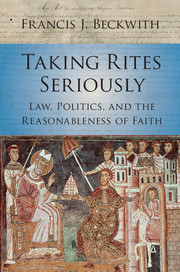Book contents
- Frontmatter
- Dedication
- Contents
- Acknowledgments
- 1 Introduction: Faith Seeking Understanding
- Part I Reason and Motive
- Part II Dignity and Personhood
- 4 Dignity Never Been Photographed: Bioethics, Policy, and Steven Pinker's Materialism
- 5 Personhood, Prenatal Life, and Religious Belief
- Part III Nature and Sex
- Index
4 - Dignity Never Been Photographed: Bioethics, Policy, and Steven Pinker's Materialism
from Part II - Dignity and Personhood
Published online by Cambridge University Press: 05 November 2015
- Frontmatter
- Dedication
- Contents
- Acknowledgments
- 1 Introduction: Faith Seeking Understanding
- Part I Reason and Motive
- Part II Dignity and Personhood
- 4 Dignity Never Been Photographed: Bioethics, Policy, and Steven Pinker's Materialism
- 5 Personhood, Prenatal Life, and Religious Belief
- Part III Nature and Sex
- Index
Summary
Sick man lookin' for the doctor's cure
Lookin' at his hands for the lines that were
And into every masterpiece of literature
for dignity …
Someone showed me a picture and I just laughed
Dignity never been photographed
I went into the red, went into the black
Into the valley of dry bone dreams
So many roads, so much at stake
So many dead ends, I'm at the edge of the lake
Sometimes I wonder what it's gonna take
To find dignity
Bob Dylan (1941–)We are moving towards a dictatorship of relativism which does not recognize anything as for certain and which has as its highest goal one's own ego and one's own desires.
Joseph Cardinal Ratzinger (the future Pope Benedict XVI) (1927–)In March 2008, the President's Council on Bioethics published a volume entitled, Human Dignity and Bioethics. It consists of essays penned by council members as well as other scholars and practitioners invited to contribute. As one would guess, the idea of human dignity and what it means for bioethics, both in theory and in practice, is the theme that dominates each of the works included in this impressive volume. But for those who have been following or participating in the interdisciplinary and multidisciplinary world of secular bioethics during the past several decades, the insertion of the idea of “human dignity,” or even the word “dignity,” as the anthropological foundation of bioethics is highly unusual. Much of the cutting edge literature in bioethics, with few exceptions, tends to employ the language of modern political theory and contemporary analytic political philosophy and jurisprudence. So, for example, one finds in these cutting-edge works discussions about the meaning and implementation of the principles of autonomy, justice, nonmaleficence, and beneficence, as well as calls for the application of these principles to what constitutes physician neutrality, informed consent, and patients' rights. This project often goes by the name principlism. There is, of course, much that this project has contributed to the study and practice of bioethics. For each principle and its application has a long and noble pedigree about which many of us hold a variety of opinions.
- Type
- Chapter
- Information
- Taking Rites SeriouslyLaw, Politics, and the Reasonableness of Faith, pp. 81 - 104Publisher: Cambridge University PressPrint publication year: 2015



